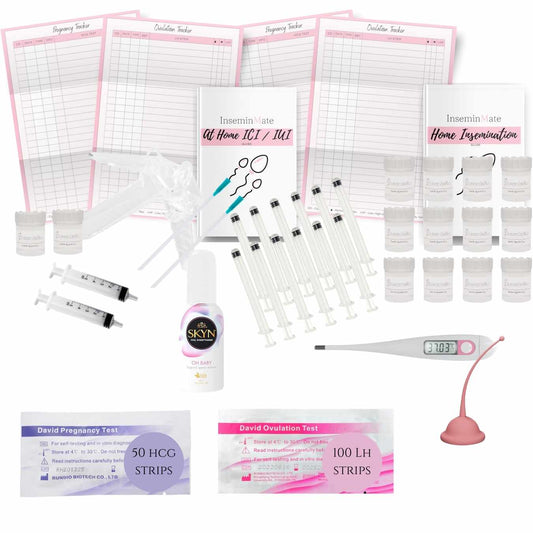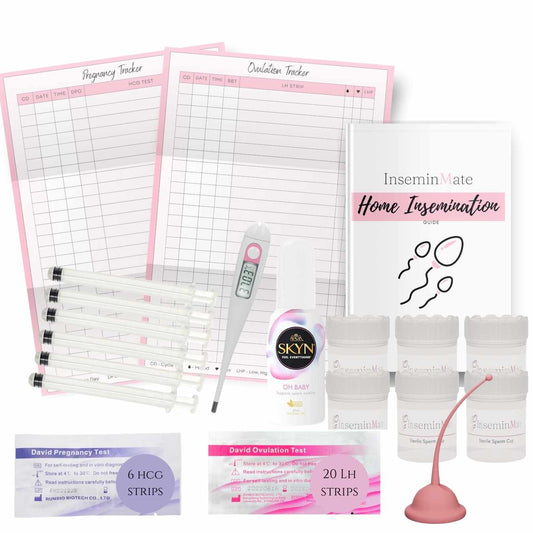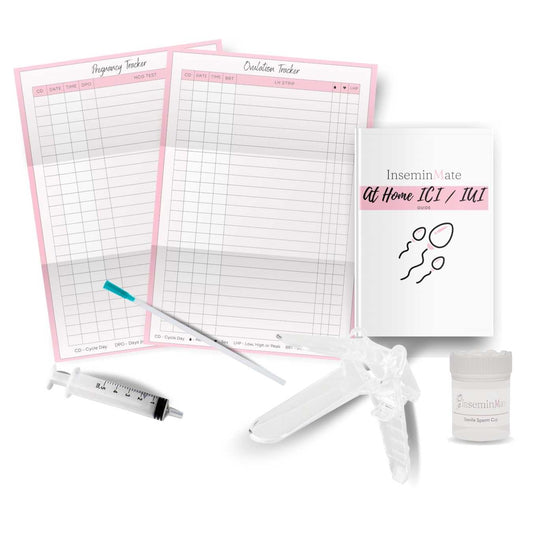For individuals or couples who are trying to conceive, self insemination at home can be an attractive option. However, it is important to understand the potential risks and success rates associated with this process. Success rates of home insemination can vary depending on multiple factors, such as the age of the person trying to conceive, the quality and quantity of the sperm used, and the timing of the insemination. While the average success rate of home insemination is approximately 10-15% per cycle, this can be increased with the use of fertility drugs or other medical interventions. It is important to note that not all attempts at home insemination will result in pregnancy. It is also important to note that self insemination carries some risks, such as infection or injury. However, using sterile equipment and following proper hygiene practices can help minimize these risks.
At InseminMate, we understand the complexities and emotions surrounding home insemination. That's why we provide a variety of resources and products to support individuals and couples in their journey towards conception. Our insemination kits include sterile equipment, step-by-step guides, and ovulation and pregnancy trackers to help increase the chances of success. Before starting any home insemination process, it is important to consult with a healthcare provider to ensure it is safe and appropriate for you. With the right resources and support, home insemination can be a viable option for those seeking to start or expand their family.




